I’ve been working in the SEO field since 2015.
I remember those days when we had no reliable SEO tools, and most content was human-written.
Today, almost everyone, especially digital marketing specialists, uses AI to facilitate their work.
Without AI SEO tools, we’d have more work for people, but it doesn’t mean that work will be done better or more effectively.
In my opinion, AI tools for SEO replace junior SEO specialists, copywriters, and SEO content writers hired to create content for search engines to manipulate rankings.
I’m sure you’ll agree that people don’t need another post on “top X AI tools for SEO to use,” but you’ll stumble upon thousands of similar articles written for ranking purposes.
Like it or not, AI is already an integral part of our lives, and we should learn to leverage it effectively.
As an SEO expert and content writer, I’ve been actively using AI tools since the ChatGPT introduction in November 2022. However, I’ve used Grammarly way before ChatGPT, which is also a kind of free AI SEO tool.
Today, the number and variety of creator tools are impressive. The only challenge is to find tools suitable for your business.
In this article, I’m sharing my feedback from using paid and free AI SEO tools. I’ll also show how my experimental AI-written and optimized articles rank on Google.
Furthermore, I’ll share some tips on how you can effectively leverage AI tools to grow your website without fear of getting a penalty from Google.
Are you excited? Then keep reading!
Here’s a table of contents for your convenience:
What are AI SEO tools?
AI SEO tools are software products that use artificial intelligence to help businesses improve their search engine optimization (SEO) efforts.
These tools can automate many of the tasks involved in SEO, such as keyword research, content optimization, and technical SEO. They can also provide insights into how to improve website performance and rankings.
Some people fear using AI tools since they can potentially replace their jobs. I’d say it’s already happening!
One of my former bosses fired a full-time copywriter because he couldn’t justify the costs. He claimed that her writing quality was similar to what ChatGPT could produce. So, he replaced a human content writer with AI.
I’m sure similar situations happen in many companies.
In my opinion, not every field of work is affected nowadays, but the situation can change soon. So, we must be ready to face it.
If you work in the SEO field, calm down! SEO will continue existing as long as people use Google search.
However, SEO has been transforming a lot with generative AI. Therefore, you, I, and other SEO specialists should adapt to leverage AI SEO tools effectively.
How to leverage AI for SEO in 2024
Since Google is the most popular search engine, I’ll mainly talk about it in this article.
Google has clear guidance when it comes to AI-generated content on the web. If you haven’t read their statement, here’s the link to their article on “Google’s guidance on AI-generated content” and an excerpt from it:
Google doesn’t care how you produce content if it’s helpful for people. However, using generated content purely for ranking manipulations is a serious policy violation.
Since most site owners don’t care about these warnings, Google introduced the Helpful Content algorithm updates to remove unhelpful content from top-ranking search results.
Have you seen a decline in impressions and clicks after the algorithm updates?
It did not happen to me (thankfully), but I’ve talked to several website owners whose websites were severely impacted by the Helpful Content update.
What does this story teach us?
You can use AI SEO tools carefully, considering users’ needs and wants whenever you create new content.
I use the following proven-to-work strategies to grow my website and client websites with AI.
Consider users’ search intent
If your users want to compare art galleries in Toronto, but you want them to visit your landing page, it won’t work!
Google knows what users want to see and do when searching for art galleries. Therefore, Google serves them with informational content, primarily listicles.
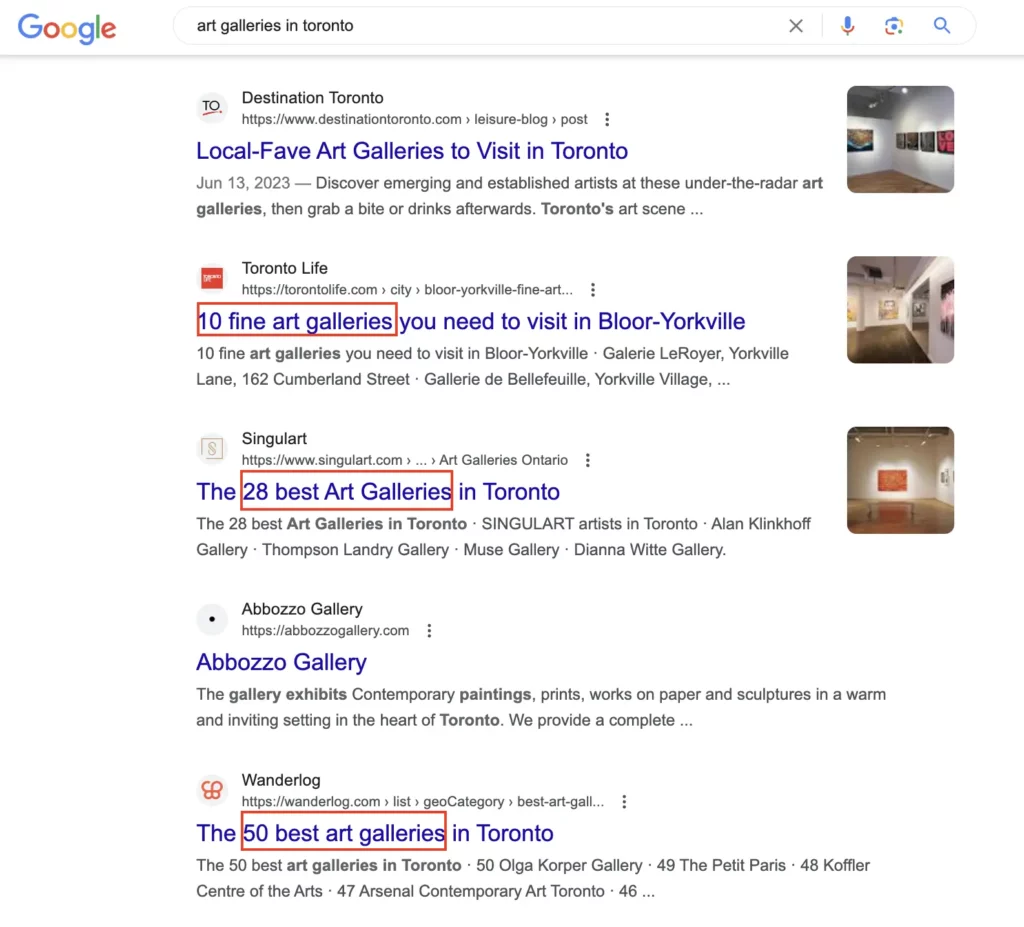


You can either check search intent manually by analyzing the top 10 organic search results (like in the example above) or use AI SEO tools, like Semrush, that show search intent for every keyword. Semrush has a free plan, which you can use to conduct limited keyword research for free.
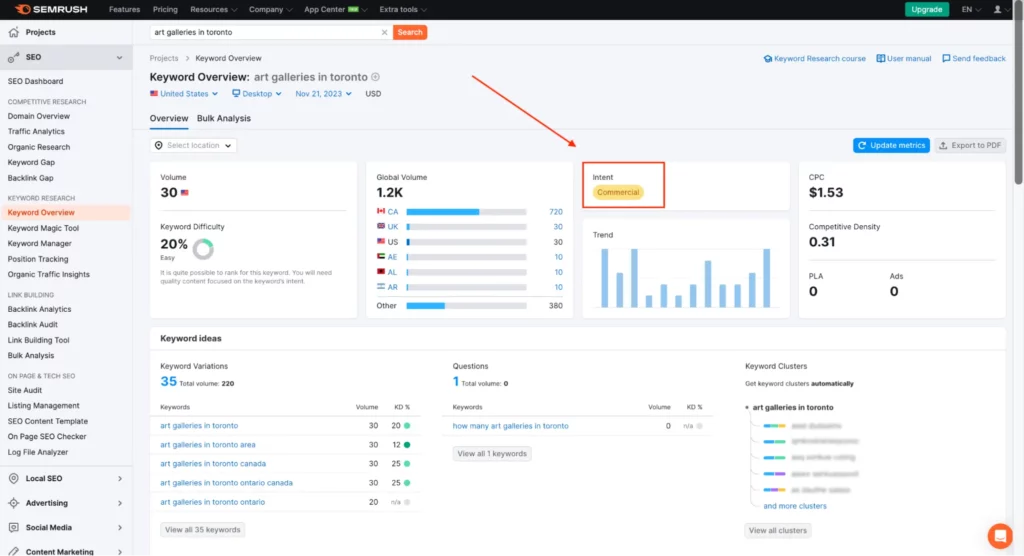


Align your content with E-E-A-T
You must have heard of Experience, Expertise, Authority, and Trust (E-E-A-T) quality rater guidelines since it’s been a topic for discussion for a while.
The main point of this essential update is to help Google understand which sites have authority and trust on the web.
Experts with niche websites, blogging about their topic, having active social media profiles, and being mentioned and quoted on other websites probably know what they preach.
Therefore, Google may boost websites where it’s clear who’s behind the scenes and what their expertise is.
If you use AI SEO tools and publish AI-generated content, but your content is optimized for E-E-A-T, it will rank!
Here is what you can do to align your website with E-E-A-T:
- If you have a blog, include an author bio section, which will help readers (and Google) understand who wrote the content and whether the writer has enough expertise
- Add links to social media accounts or any other platforms featuring the author
- Mention rewards and recognitions
- Share content editors if there are any
- Share content on your social media accounts and ask your authors to do the same
- Ask the author to include case studies, stories, and personal opinions in the content
Note that it’s even more critical for the Your Money, Your Life (YMYL) topics, which include healthcare, personal finances, insurance, investment, and similar topics.
AI tools for SEO will unlikely help you create and optimize content for rankings if you operate in these niches since Google prioritizes content from certified experts only!
Use AI tools for SEO to complete these tasks
Based on my experience, free AI tools for SEO, such as ChatGPT and Bard, can perfectly handle the following tasks:
- Write definitions
- Create short FAQ answers
- Write pros and cons (although fact-checking is required)
- Write code for structured schema
- Write summaries
- Write conclusions
To say more, AI tools are much better at writing succinct and clear definitions than human writers.
I am not ashamed to say I use AI tools for SEO, mainly ChatGPT, to write definitions on my website. I haven’t seen a negative impact as long as I proofread content and align it with E-E-A-T and users’ search intent.
Add links
Internal links help Google discover new URLs and understand the connection between different pages.
On the other hand, external links to credible resources and quotes indicate that the content isn’t solely based on your opinion.
Based on my experience, AI-generated content often includes statements that require fact-checking and backup.
So, if you use AI tools for SEO for content generation, ensure you double-check the content for accuracy and include relevant external and internal links.
7 AI SEO tools to speed up your SEO work
As an SEO expert and content writer, I’ve used various tools to speed up my work. Honestly, not every tool delivers on its promise. Most AI SEO tools provide useless advice and AI-generated content that can’t be published as it is.
That’s why I’m very selective regarding AI tools for SEO.
As a content creator and SEO expert, I use the following 6 tools almost daily. Some are used solely for my website, like Robinize and CanIRank, while others are beneficial for my client’s work.
GREMI
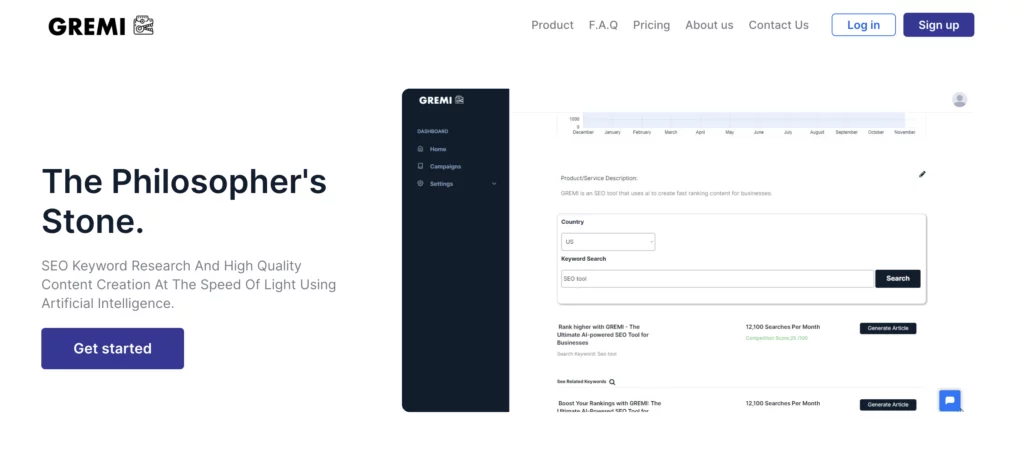


Best for
-
Marketers
-
Small businesses
-
SEO professionals
-
Startups
Alternative to
-
SERPS
-
SEMRush
-
Moz
Best features
-
AI-Powered Keyword Research
-
Automated Content Generation
-
AI-Powered Progress Tracking
GREMI is an AI-powered SEO tool that acts as a co-pilot to anyone trying to get their company to rank in search results.
GREMI starts the search by turning your product or service description into a list of search keyword recommendations with no help from you. After that, it will show you content that’s already been generated to help you market your business next to each one.
When you’re ready to start tracking, GREMI’s AI-powered tracking software lets you benchmark your current place in the search engine and watch it grow over time.
Unlike other AI tools, GREMI has become a trailblazer in turning in SEO SaaS products and a great example of using AI to create helpful products for the next generation of entrepreneurs and marketers.
Semrush
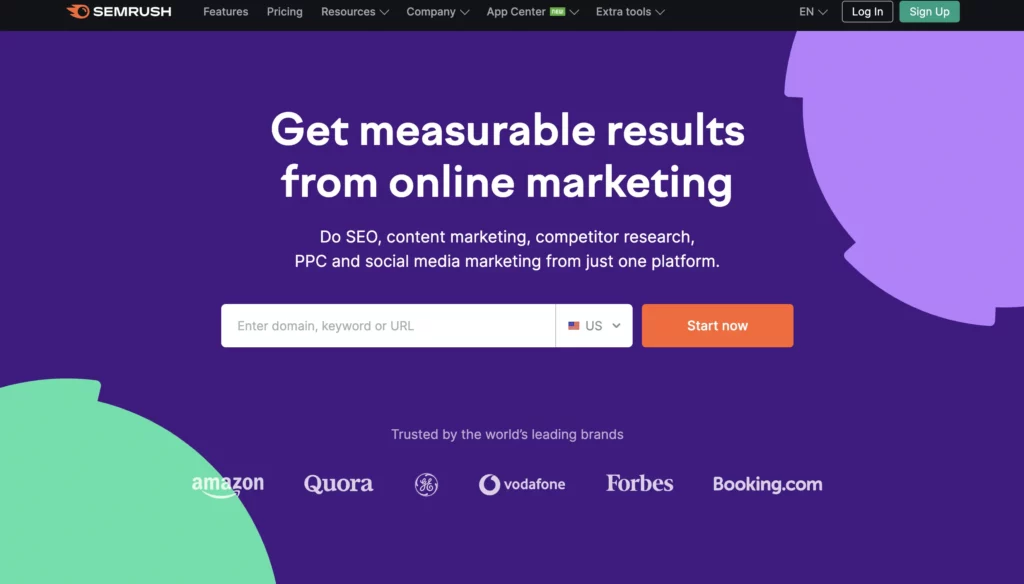


Best for
- Marketers
- SEO experts
- Agencies managing client websites
- Site owners willing to grow their websites
Alternative to
- Ahrefs
- Mangools
- Moz
Best features
- On-page SEO Checker
- SEO content template
- Writing assistant
Semrush is an all-in-one AI SEO tool anyone would need to grow a website. It offers various features for literally all website-related needs.
As an SEO specialist and content writer, I use Semrush to conduct site audits, track my website performance, conduct niche keyword research, and create optimized content.
If your goal is to create optimized content for your website, you can also use Semrush SEO Content Template to speed up your work.
For example, Semrush automatically identifies semantically related keywords, minimum text length, and content optimization opportunities. It’s a big-time saver. Besides, it’s available under the Semrush free plan. You can register and try Semrush for free by following this link.
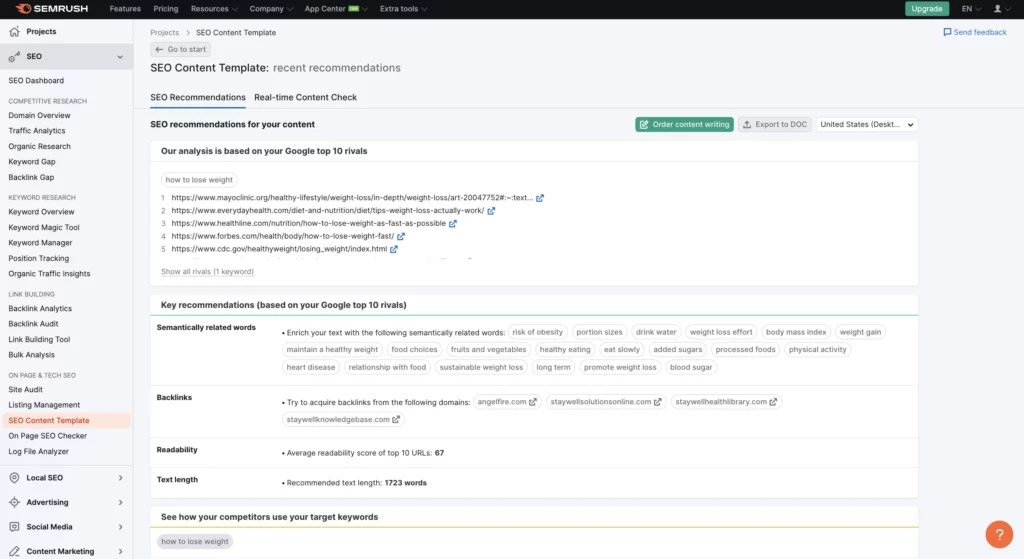


Frase.io
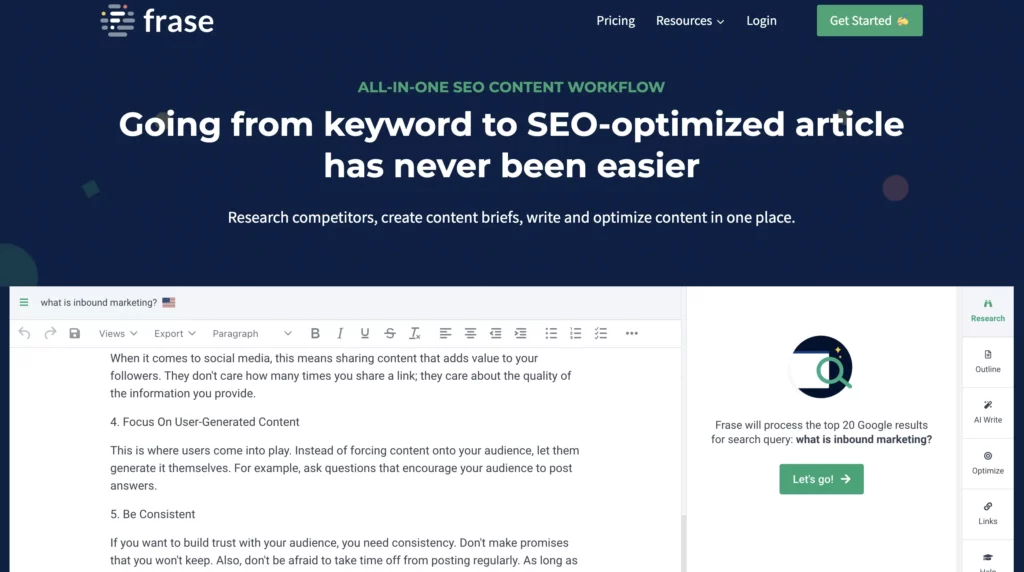


Best for
- Content creators
- Site owners who create a lot of written content
- Freelance content writers
Alternative to
- ChatGPT
- Bard
- Jasper.ai
Best features
- SERP research
- AI-powered content briefs
- Content scoring
Frase.io is an AI SEO content optimization tool that helps you create content that ranks higher in search engine results.
I used Frase.io for content creation sometime in the past. Even though on-page optimization isn’t its strongest side, the tool can help you automatically generate content briefs with the key points you need to cover in your content and write the content.
I wrote a detailed Frase.io review sharing my experience from using the tool and a short case study of how the content created with the help of Frase.io ranked in organic search results.
Robinize
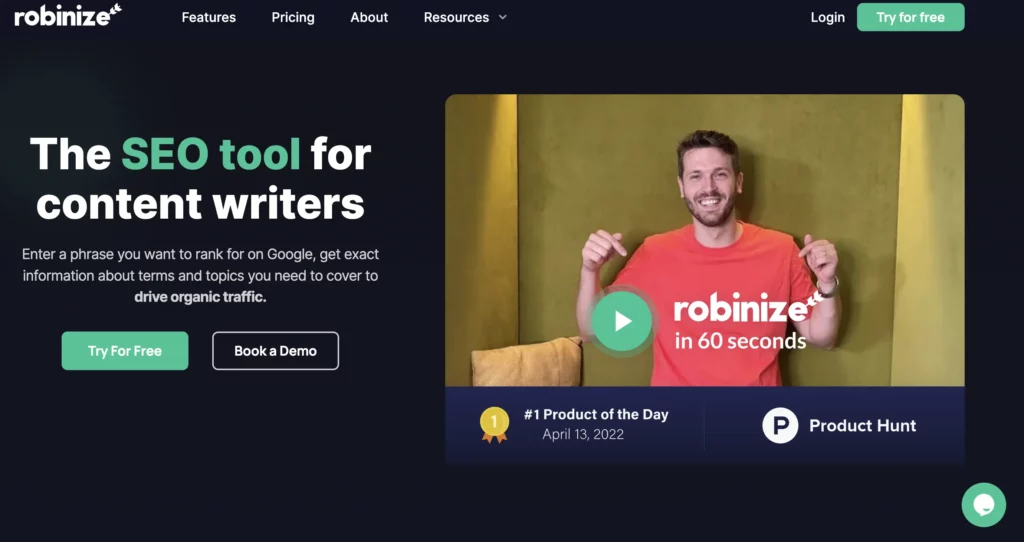


Best for
- Website owners who manage their websites individually
- Startups on a budget
Alternative to
- SurferSEO
Best features
- Outline creation
- SERP analysis
- Keyword highlight
I have been familiar with Robinize since its first days. I provided feedback to the tool owner to improve its functionality.
Even though Robinize is still in its early growth stage, it can help optimize your content for rankings. Moreover, Robinize has a free version with 3 free monthly reports and a ChatGPT integration. If you are looking for a free or affordable AI SEO tool, register and try Robinize.
I also wrote a Robinze review, which can help you learn more about the tool.
CanIRank
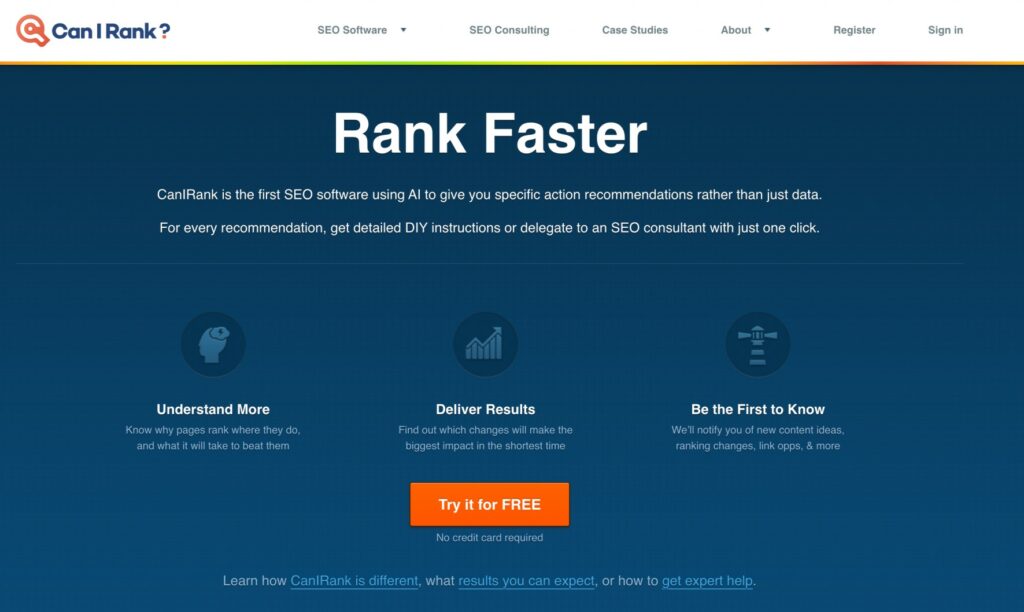


Best for
- Website owners managing their own websites
- Startups
- Small businesses
Alternative to
- Ubersuggest
Best features
- The “Grow my content” report
- The “Improve my rankings report”
CanIRank is an AI tool for SEO specialists, businesses, and website owners to help improve website performance.
I’ve used the CanIRank free version for several years because it provides valuable information about my website performance and improvement ideas.
The following are a few example recommendations from CanIRank to help you better understand what you can expect:
- Semantically related keywords
- Semantically related questions to add to the page
- Recommended word count
- Keywords usage recommendations
I find CanIRank recommendations helpful for SEO beginners and less tech-savvy professionals. If you want to learn more about the tool, check out my CanIRank review.
Jasper AI
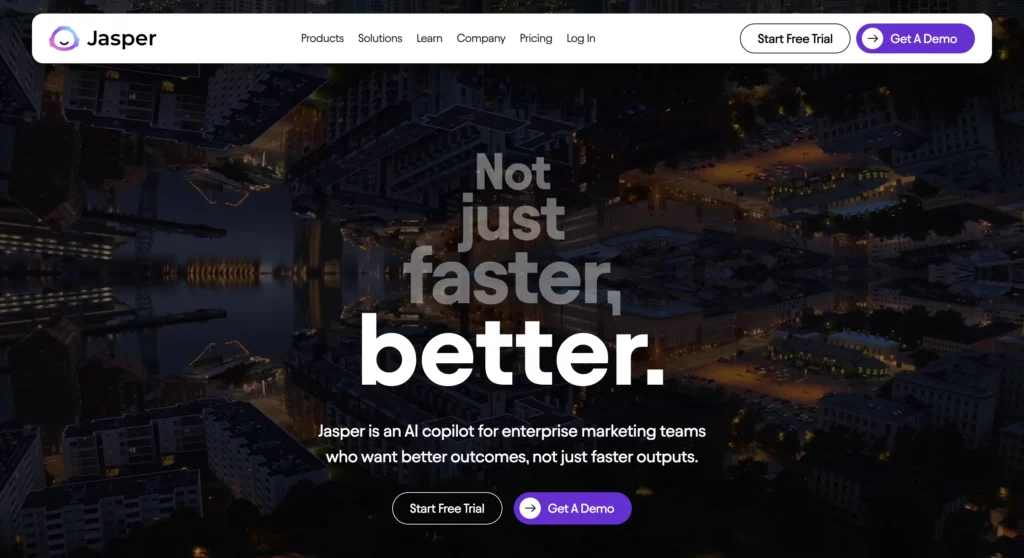


Best for
- Content writers
- SEO writers
- Site owners
- Marketing agencies
Alternative to
- Robinize
- SurferSEO
Best feature
- Multilingual support in 30 languages
- Plagiarism detector
- SEO content optimizer
Jasper AI is an AI content writing platform that helps businesses create high-quality content in a fraction of the time. It uses artificial intelligence to generate text, translate languages, write different kinds of creative content, and answer your questions informally.
Jasper AI can be used to create a variety of content, including:
- Blog posts
- Social media posts
- Website copy
- Email marketing campaigns
- Sales scripts
- Ad copy
- Books
- Screenplays
- Poems
- Code
ChatGPT



Best for
- Content writers
- Web and software developers
- Copywriters
- Marketing specialists
Alternative to
- Bard
- Jasper AI
- Frase
Best features
- ChatGPT does not have features. However, ChatGPT Plus has Internet access and lets you use additional tools, such as the DALLE, an AI image generation tool.
I am sure you’ve heard of ChatGPT and used it at least once. The hype around AI tools for SEO, content creation, and copywriting started with ChatGPT in November 2022.
I was against using ChatGPT for SEO because no one talked about the consequences. Google says you can use AI content generators for your website. However, creating content for search results manipulation is a policy violation.
Guess what? 99% of site owners use content generation for this purpose. That’s why we must be cautious.
After using ChatGPT for months and analyzing the AI-generated content performance, I can say with certainty that ChatGPT is suitable for:
- Definitions generation
- FAQ generation
- Outline creation
- Explaining complex concepts in a simple way
- Etc.
Google won’t penalize your website unless you use ChatGPT and other AI tools to improve but not replace human writing.
You can learn more about my experiments with ChatGPT on my Medium blog.
How to write SEO content using AI
Now comes an exciting part you’ve probably been waiting for.
Since I run a newsletter about SEO and share my SEO thoughts on Medium, people frequently ask me how to use AI to create optimized content without getting banned by Google.
I used AI generators to write multiple articles on my website, including this one. Nevertheless, my website’s traffic has steadily grown, and no Google updates have strongly impacted my website’s performance.
Here’s a proof.
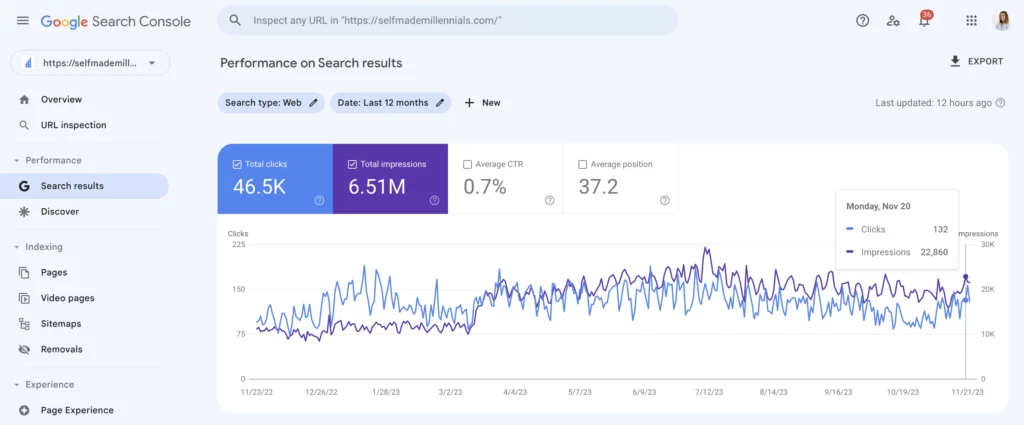


Despite dedicating almost zero time to my website, it’s been steadily growing. Luckily, AI helps speed up the content creation work.
I use the following strategies to create content for my website that will also help you safely grow your website with the help of AI.
Keyword research and analysis are the first things I do before creating any content.
I recommend checking keyword difficulty and traffic potential with Semrush. It’s one of the biggest and best tools on the market. Therefore, I rely on its data while managing various websites.
You don’t need to pay for the tool if you want to check keywords in Semrush occasionally. You can use Semrush free plan for up to 10 searches per month.
I recommend checking the monthly search volume in your target country and globally, as well as the keyword difficulty. It’s also a good idea to check the search intent, but it will be informational for all blog posts.
Does your keyword have a search volume and bearable competition? Do you believe your website can realistically rank for this keyword?
If not, you’ll have to find another keyword. Wasting your time and resources isn’t worth it.
If yes, it’s an excellent news! Let me show you what you should do next.
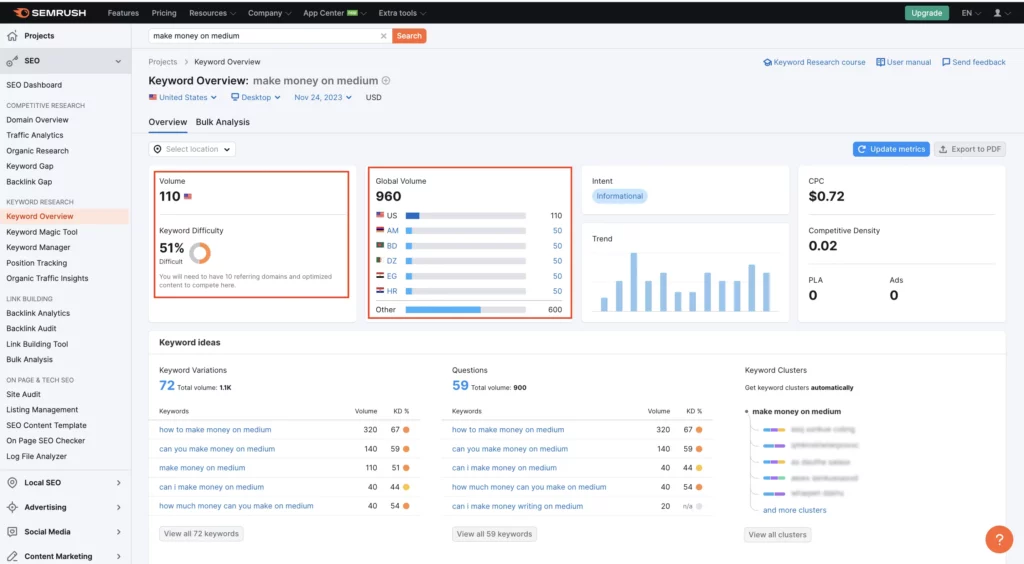


I used to analyze the top 10 search results to manually create an outline and collect semantically related keywords.
Today, you can do it in a few minutes with AI tools for SEO, such as SurferSEO, Robinize, ChatGPT, and Frase.io.
It’s up to you what tool to use. The goal is to generate an article outline with H1, H2, H3, and H4 titles.
I frequently use ChatGPT and Robinize for these tasks since both tools have free plans.
Besides the outline, Robinize recommends semantically related keywords, suggests the word count, analyzes your content readability, and highlights keywords in the copy.
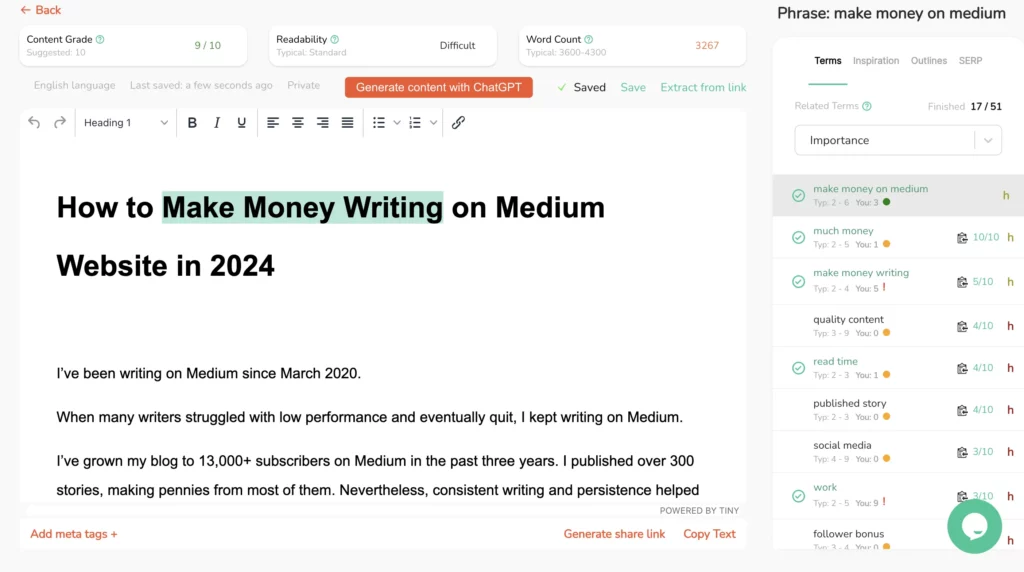


You can start typing directly in a tool or use ChatGPT integration to generate content.
I’m still creating most of my website content in Google Docs, but I actively use ChatGPT to write definitions, FAQ questions, and comparisons.
As long as over 50% of your article is unique and human-written, Google won’t flag it as unhelpful.
It’s also a good idea to include your experience and opinion in the article, share a personal story, and add practical recommendations people can apply in real life.
If that’s your personal website, ensure you have an author bio section explaining who you are, your education, and your experience related to the topic. It will help you make your perfect unique and helpful for readers, grow your personal brand, and align your content with E-E-A-T.
Even though ChatGPT and Bard aren’t very creative, I encourage you to create optimized meta titles and descriptions using AI tools.
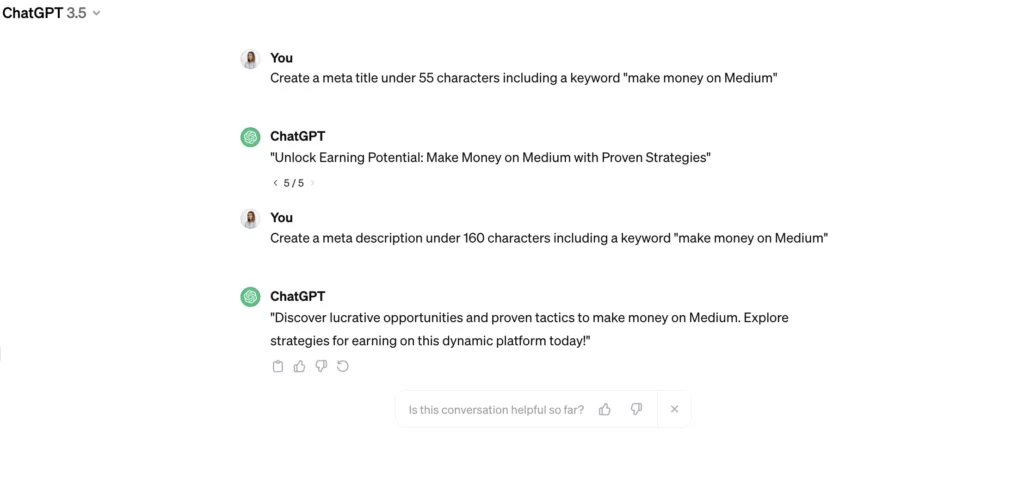


I highly recommend reviewing the meta titles of the top 10 ranking websites before using the ones generated by AI. You must ensure your metadata is more catchy than what’s already ranking on top of Google.
Another critical step in the content creation process is on-page optimization.
You must optimize content to increase its chances of ranking in organic search results.
I tried delegating this task entirely to AI tools for SEO, but it didn’t work.
I used ChatGPT, Bard, and Frase.io for on-page optimization, but the tools couldn’t fulfill the request.
That’s why I recommend reviewing whether your AI-generated and human-written content has a target and semantically related keywords in the following spots:
- Meta title
- Meta description
- H1 title
- H2, H3, H4 subtitles
- Content introduction
- Every 150-300 words of the content body
- Alt text
- Image file names
- Etc.
Once you are done, upload the content to WordPress or another CMS system before publishing it on your website.
Don’t forget to generate FAQ questions to get a featured snippet on Google. Every question can have an answer with 3-5 sentences and be added either through WordPress plugins (All In One SEO, in my case) or manually.
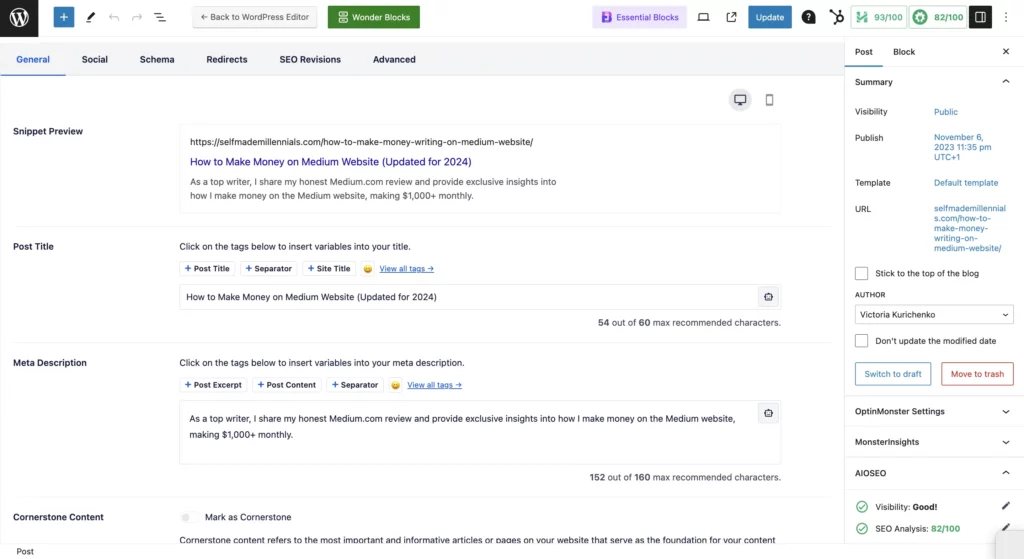


Once you are done optimizing your content, hit “Publish.”
From now on, your task will be tracking impressions, clicks, and rankings of the recently published article.
Whether you use this strategy for new content creation or content updates, you’ll see the first positive results in a few days.
In fact, here is how my article performance improved after following all the steps described above.
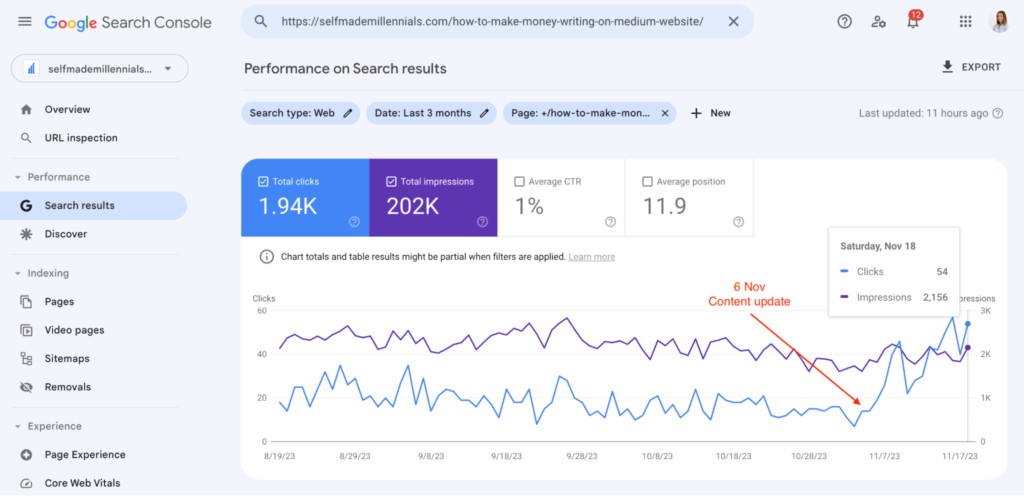


My article has a featured snippet that is shown for the target and semantically related keywords. It’s possible to achieve it for optimized pages ranking in the top 10 organic search results.
If you want to learn more about how I create high-ranking blog posts, check out my ebook.
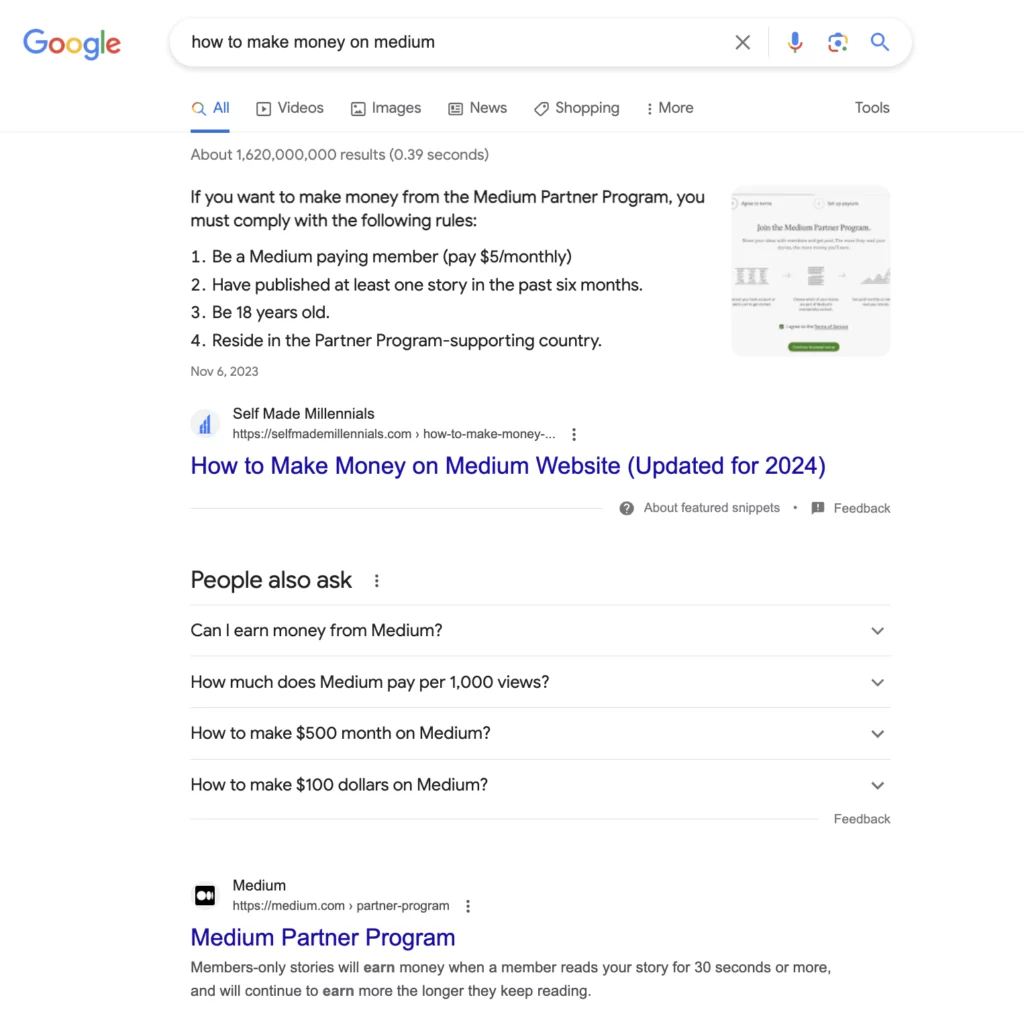


FAQ
Concluding an article with an FAQ section is an excellent practice.
You answer users’ questions and optimize your article for a featured snippet.
I always use AI tools for SEO to generate answers, but I always fact-check and edit content before publishing. It’s a perfect synergy of AI and human writing.
AI can be utilized for SEO through automated content generation, helping create optimized and high-quality articles. Additionally, AI-powered tools can assist in keyword research, backlink analysis, and predictive analytics, enhancing the overall effectiveness of SEO strategies.
The following tools can help you automate various aspects of SEO, saving time and enhancing the efficiency of optimization efforts:
1. ChatGPT
2. Bard
3. Semrush
4. SurferSEO
5. Robimize
6. Frase.io
7. Jasper.ai
8. CanIRank
9. KoalaWriter
When choosing an AI tool for SEO, consider your specific needs and goals, such as content optimization, keyword analysis, or backlink management. Look for tools with a user-friendly interface and integration capabilities with your existing SEO workflow and tools.
Additionally, read reviews, seek recommendations from industry experts, and trial the tools when possible to ensure they align with your SEO strategy and provide the insights and automation you require.
AI has significantly impacted SEO by automating tasks like content writing, copywriting, and social post creation, to name a few.
I’ve used paid and free AI tools for SEO multiple times to grow my website. If interested, you can read more about my case study on the impact of AI on SEO from this ChatGPT for SEO article.



Hello there!
My name is Victoria.
I am an SEO expert, Medium top writer, solopreneur, and the founder of Self Made Millennials. I help companies create optimized content and attract potential customers through organic search results. In addition, I share how content creators can monetize their writing skills.
Latest posts
Get my SEO writing ebook
Related blog posts
SEO writing A Guide to SEO for Lead Generation In 2024 written by Victoria Kurichenkoposted on February 23, 2023As an SEO writing expert, I often hear the following complaints from my current clients and prospects:We want to use SEO for lead generation but do not know how.We struggle to implement …
SEO writing SEO For a New Website In 2023 written by Victoria Kurichenko updated on October 16, 2022 A well-performing website is often perceived as a lucrative but challenging endeavor. It seems everything has already been said and written online, and there is no way to get noticed in all …


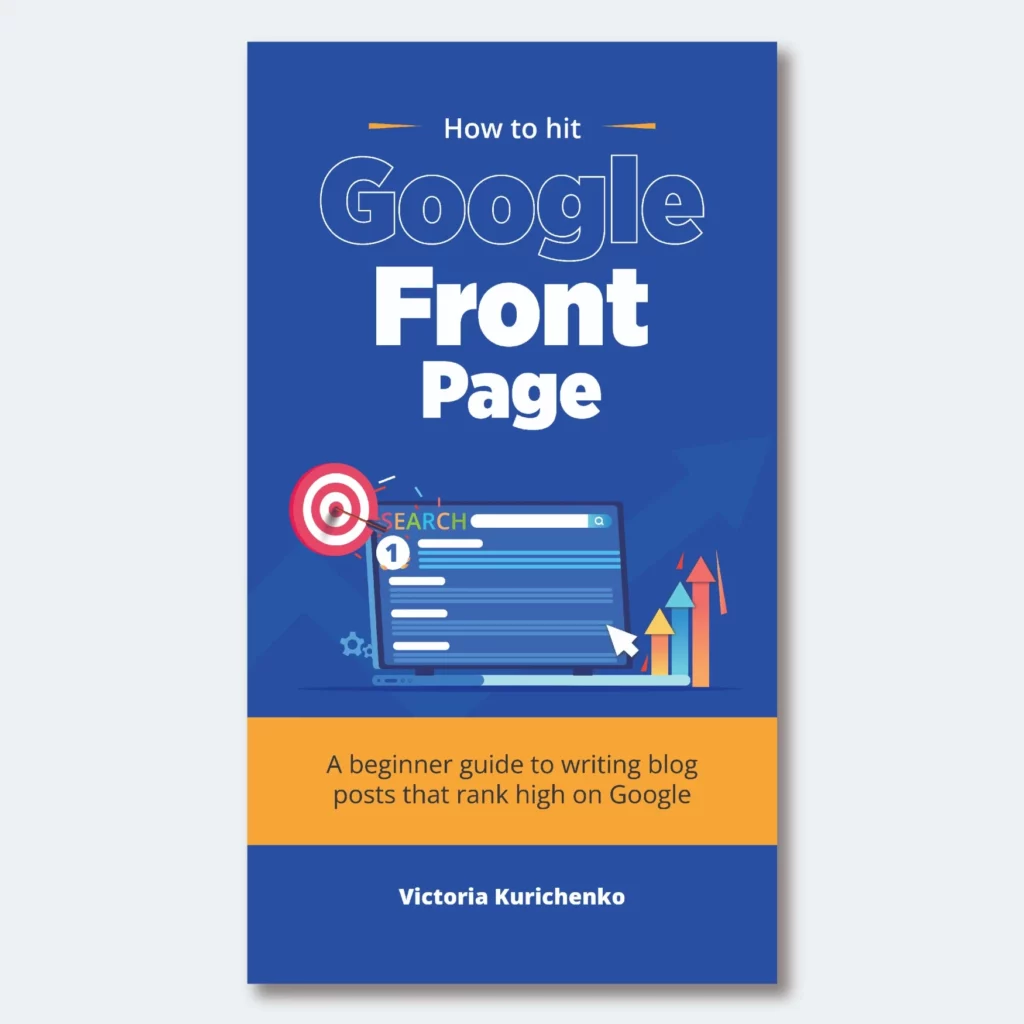
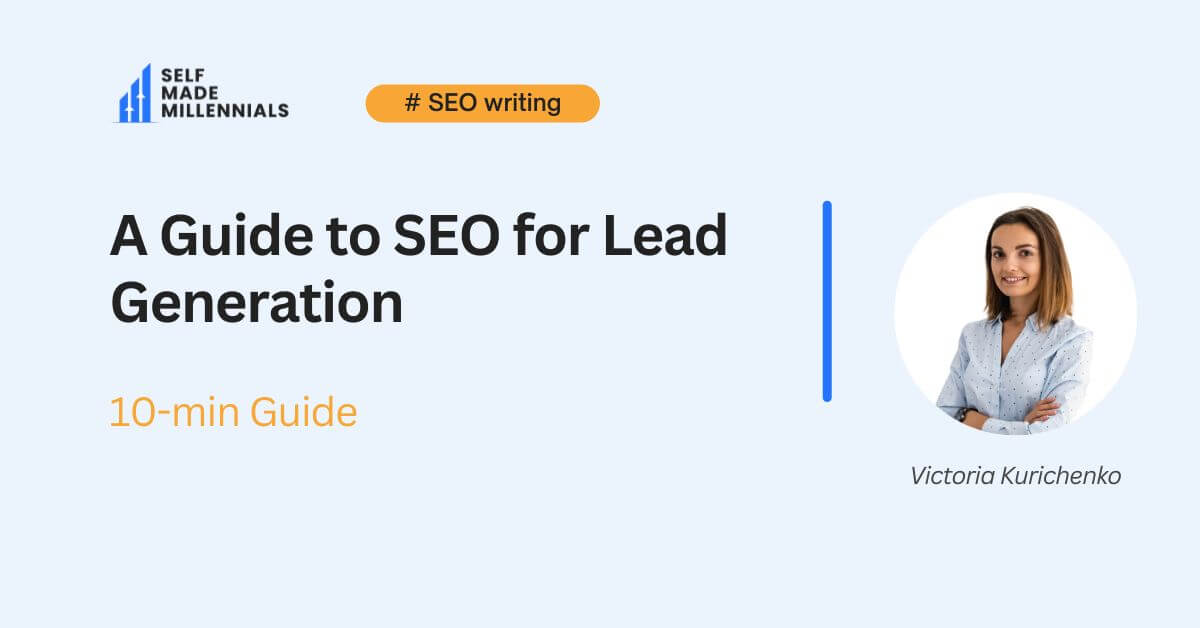

When it comes to automatically generated content, our guidance has been consistent for years. Using automation—including AI—to generate content with the primary purpose of manipulating ranking in search results is a violation of our spam policies.
Google